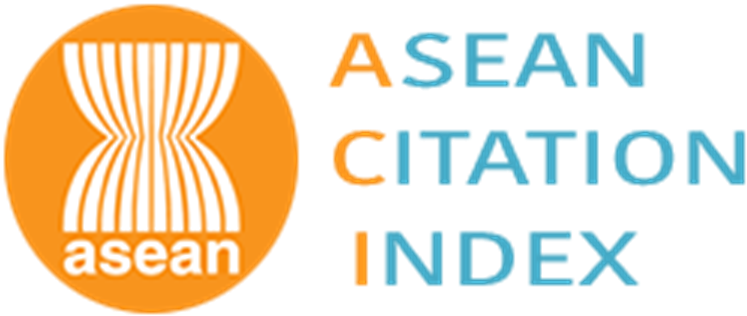รูปแบบการพัฒนาศักยภาพของผู้บริหารระดับกลางในอุตสาหกรรมการผลิตแท่นผลิตปิโตรเลียมในประเทศไทย
Mid-Level Managerial Potential Development Model for Thailand’s Petroleum Production Platform Manufacturing Industry
Abstract
การวิจัยเรื่องรูปแบบการพัฒนาศักยภาพของผู้บริหารระดับกลางในอุตสาหกรรมการผลิตแท่นผลิตปิโตรเลียมในประเทศไทยในครั้งนี้ มีวัตถุประสงค์เพื่อ 1) ศึกษาองค์ประกอบของรูปแบบการพัฒนาศักยภาพของผู้บริหารระดับกลางในอุตสาหกรรมการผลิตแท่นผลิตปิโตรเลียมในประเทศไทย 2) สร้างรูปแบบการพัฒนาศักยภาพของผู้บริหารระดับกลางในอุตสาหกรรมการผลิตแท่นผลิตปิโตรเลียมในประเทศไทย และ 3) จัดทำคู่มือแนวทางการพัฒนาศักยภาพของผู้บริหารระดับกลางในอุตสาหกรรมการผลิตแท่นผลิตปิโตรเลียมในประเทศไทย การวิจัยครั้งนี้เป็นการวิจัยแบบผสมผสานทั้งเชิงคุณภาพและปริมาณ กลุ่มผู้ให้ข้อมูลมีทั้งหมด 3 กลุ่ม ได้แก่ 1) กลุ่มผู้ทรงคุณวุฒิสำหรับการสัมภาษณ์เชิงลึก จำนวน 14 คน 2) กลุ่มผู้ทรงคุณวุฒิในการประชุมสนทนากลุ่มประชาพิเคราะห์ (Focus Group) จำนวน 16 คน และ 3) กลุ่มตัวอย่างที่ให้ข้อมูลเชิงปริมาณ จำนวน 400 คน เครื่องมือที่ใช้ในการวิจัย ได้แก่ แบบสัมภาษณ์เชิงลึกกึ่งโครงสร้าง และแบบสอบถาม สถิติที่ใช้ในการวิเคราะห์ข้อมูล ได้แก่ ความถี่ ร้อยละ ค่าเฉลี่ย ส่วนเบี่ยงเบนมาตรฐาน ค่าสัมประสิทธ์สหสัมพันธ์ และค่าสถิติวิเคราะห์องค์ประกอบเชิงสำรวจ (Exploratory Factor Analysis; EFA) ผลการวิจัยพบว่า องค์ประกอบการพัฒนาศักยภาพของผู้บริหารระดับกลางในอุตสาหกรรมการผลิตแท่นผลิตปิโตรเลียมในประเทศไทย มี 3 องค์ประกอบหลัก 9 องค์ประกอบย่อยโดยในแต่ละด้านเป็นดังนี้ 1) ด้านความรู้ X̅ = 4.13 มี 3 องค์ประกอบย่อย คือ 1.1) ความรู้ในการบริหารจัดการองค์กร1.2) ความรู้เกี่ยวกับวัฒนธรรมและสภาพแวดล้อมภายนอกองค์กร และ 1.3) ความรู้เกี่ยวกับกฎหมายข้อบังคับที่เกี่ยวข้องกับอุตสาหกรรมการผลิต 2) ด้านทักษะ X̅ = 4.24 มี 3 องค์ประกอบย่อย คือ 2.1) ทักษะการบริหารการดำเนินงาน 2.2) ทักษะการบริหารจัดการทีมงาน และ 2.3) ทักษะการสื่อสารและการใช้เทคโนโลยีสารสนเทศ และ3)ด้านคุณลักษณะเฉพาะบุคคล X̅ = 4.42 มี 3 องค์ประกอบย่อย คือ 3.1) ภาวะผู้นำ 3.2) ความคิดริเริ่มสร้างสรรค์ และ3.3) มนุษย์สัมพันธ์ โดยผู้ทรงคุณวุฒิมีความเห็นว่า รูปแบบและคู่มือที่ได้มีความเหมาะสมสามารถนำไปประยุกต์ใช้งานได้
This purposes of this research are: 1) to study the components of a potential development model for middle-level managers working in Thailand’s petroleum production platform industry; 2) to develop a valid competency framework for the targeted managerial personnel; and 3) to create relevant potential development guidelines that could be applied in broader situations. The study involved the mixing of quantitative and qualitative research methods. Three groups of key informants consisted of 1) 14 experts participating in the in-depth interviews; 2) 16 expert participants in focus group discussions; and 3) a sample of 400 research respondents who provided quantitative information. The instrument for collecting the data were semi-structured interview questions and a survey questionnaire. The methods for performing statistical analysis involved frequency, percentage, mean, standard deviation, correlation coefficients and Exploratory Factor Analysis (EFA). As results, the explored potential development constituents included 3 components and 9 subcomponents. The key components were revealed as 1) Knowledge, M = 4.13, associated with 3 sub-elements: insights into organizational management, awareness of external organizational environment and corporate culture, along with understanding of laws and regulations relevant to the manufacturing industry, and; 2) Skills, M = 4.24, covering 3 sub-elements, i.e. operational management, team management, and information and communications technology skills; 3) Personality Traits, M = 4.42, containing 3 sub-elements, i.e. leadership, creativity, and human relations. The developed framework and competency development manual were approved by the experts with regard to their appropriate applicability and possibility of further implementation.
Keywords
[1] Department of Natural Fuels. (2020, May). Process Facilities of Platform and Floating Production Storage. Ministry of Energy. Thailand. [Online]. (in Thai). Available: https://dmf.go.th/ public/list/data/index/menu/1111
[2] D. C. McClelland, “Testing for Competence rather than for intelligence,” American Psychologist, vol. 17, no. 7, pp. 57–83, 1973.
[3] P. Thetbanthad, T. Boonyasopon, and P. Attavinijtrakarn, “A potential development framework for inermediate managers of the petrochemical industry,” The Journal of KMUTNB, vol. 30, no. 3, pp. 529–536, 2019 (in Thai).
[4] P. Chatsanguthai. “The development model of potential management to work in ASEAN,” DBA. thesis, Department of Industrial Business and Human Resource Development, Faculty of Business and Industrial Development, King Mongkut’s University of Technology North Bangkok, 2014 (in Thai).
[5] Y. Panitanwong, T. Boonyasopon, S. Wisuttipaet, and T. Roopsing. “The development model of the management’s potential in construction service industry for Thailand 4.0” The Journal of KMUTNB, vol. 30, no. 2, pp. 351–360, 2020 (in Thai).
[6] S. Indra, T. Boonyasopon, S. Siengchin, and S. Wisuttipaet, “The model of potential development safety officer reduce losses in industrial factoies,” Technical Education Journal : King Mongkut’s University of Technology North Bangkok, vol. 10, no. 1, pp. 183–193, 2019 (in Thai).
[7] P. Vashirawongpinyo, “The establishment administrators competency model in the eastern seaboard industrial estate Rayong province,” Journal of Business Administration MUT, vol. 10, no. 2, pp. 1–16, 2013 (in Thai).
[8] P. Inthapichai. “The development of the essential competency model for safety manager in construction in the railway industrial,” DBA. thesis, Department of Industrial Business and Human Resource Development, Faculty of Business and Industrial Development, King Mongkut’s University of Technology North Bangkok, 2021 (in Thai).
[9] K. Thongprasit, “Competency development for personal responsible for energy management in Textile Industry under the Minstry of Energy” DBA. thesis, Department of Industrial Business and Human Resource Development, Faculty of Business and Industrial Development, King Mongkut’s University of Technology North Bangkok, 2020 (in Thai).
DOI: 10.14416/j.kmutnb.2023.11.001
ISSN: 2985-2145





